As a college student or recent graduate, the prospect of finding a fulfilling and rewarding career can be both exciting and daunting. You’ve worked hard to earn your degree, and…
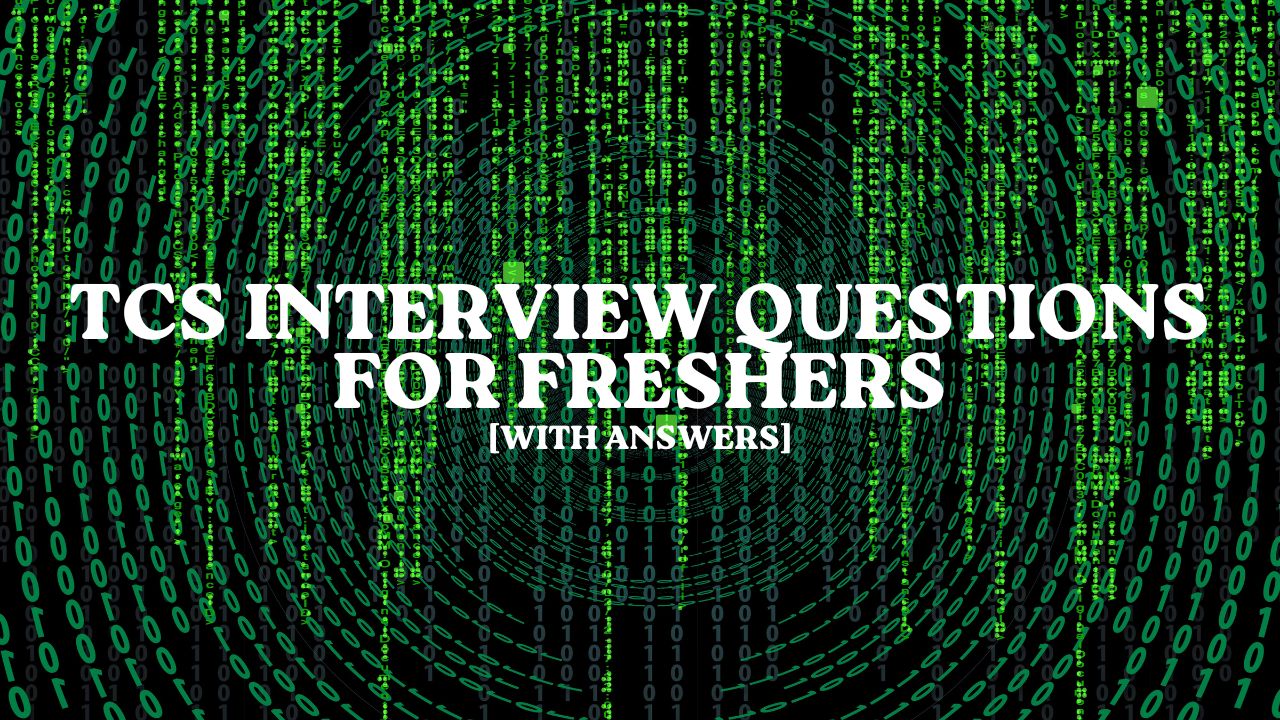
TCS Interview Questions for Freshers: How to Prepare & What to Expect
Tata Consultancy Services (TCS) is one of India’s premier IT service providers and a coveted employer for fresh graduates. With its structured recruitment process and comprehensive training programs, TCS offers an excellent launchpad for budding professionals. However, the competition is fierce, with thousands of candidates vying for limited positions each year.
TCS Interview Questions for Freshers PDF
This guide aims to equip you with essential knowledge about how to prepare for the TCS recruitment process and common TCS interview questions for freshers. Whether you have an IT background or a non-IT discipline, this comprehensive resource will help you confidently navigate the TCS interview process.
TCS Recruitment Process
Before diving into specific interview questions, it’s crucial to understand the overall recruitment journey at TCS. The process typically involves:
- Online application
- TCS Aptitude test (National Qualifier Test)
- Technical interview
- HR interview
- Document verification
Each stage assesses your capabilities, from analytical thinking to technical knowledge and soft skills. Let’s explore how to prepare for the TCS recruitment process effectively.
20 TCS Interview Questions for Freshers: Technical Round
The technical interview assesses your fundamental knowledge and problem-solving abilities. Here are 20 TCS interview questions for freshers commonly asked in technical rounds:
What is the difference between a stack and a queue in data structures?
A stack follows the LIFO (Last In First Out) principle, where elements are added and removed from the same end. A queue follows the FIFO (First In First Out) principle, where elements are added at one end and removed from the other. Stacks are used in function calls and undo operations, while queues are used in scheduling and breadth-first search algorithms.
Explain the concept of inheritance in object-oriented programming.
Inheritance is a mechanism where a new class (child/derived class) inherits properties and behaviors from an existing class (parent/base class). This promotes code reusability and establishes an “is-a” relationship. Types include single inheritance (one parent), multiple inheritance (multiple parents), and multilevel inheritance (chain of inheritance).
Write a program to find out whether a given string is a palindrome.
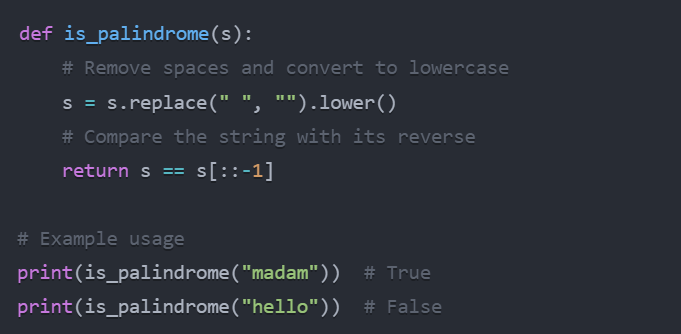
What are the different sorting algorithms you know? Compare their time complexities.
Common sorting algorithms include:
- Bubble Sort: O(n²) average and worst case
- Selection Sort: O(n²) in all cases
- Insertion Sort: O(n²) average and worst case, O(n) for nearly sorted data
- Merge Sort: O(n log n) in all cases, requires extra space
- Quick Sort: O(n log n) average, O(n²) worst case, in-place sorting
- Heap Sort: O(n log n) in all cases
Merge Sort and Heap Sort offer consistent performance, but Quicksort is often faster in practice despite its worst-case scenario.
Explain the concept of normalization in databases.
Normalization is the process of organizing database tables to minimize redundancy and dependency. It involves dividing larger tables into smaller ones and defining relationships. The primary standard forms are:
- 1NF: Eliminate duplicate columns and create separate tables for related data
- 2NF: Meet 1NF requirements and remove partial dependencies
- 3NF: Meet 2NF requirements and remove transitive dependencies
- BCNF: More stringent version of 3NF
Normalization improves data integrity and reduces storage requirements but may impact query performance.
What is the difference between process and thread?
A process is an independent program execution with its own memory space, while threads are subsets of a process that share the same memory space. Processes are isolated and resource-intensive to create/terminate, while threads are lightweight and share resources but require synchronization. Context switching between threads is faster than between processes.
Explain the OSI model in networking.
The OSI (Open Systems Interconnection) model is a conceptual framework with seven layers:
- Physical Layer: Handles raw bit transmission over physical medium
- Data Link Layer: Provides node-to-node data transfer and error detection
- Network Layer: Manages packet routing across multiple networks
- Transport Layer: Ensures complete data transfer and connection management
- Session Layer: Establishes, maintains, and terminates connections
- Presentation Layer: Translates data between application and network formats
- Application Layer: Provides network services to end-user applications
Each layer performs specific functions and communicates with adjacent layers.
What is the difference between HTTP and HTTPS?
HTTP (Hypertext Transfer Protocol) is an unsecured protocol for web communication, while HTTPS (HTTP Secure) adds encryption using SSL/TLS protocols. HTTPS encrypts data between client and server, preventing eavesdropping and tampering. It uses port 443 by default (vs. HTTP’s port 80) and requires a valid SSL certificate. HTTPS is essential for secure transactions and is now a ranking factor for search engines.
What are RESTful web services?
Answer: REST (Representational State Transfer) is an architectural style for designing networked applications. RESTful web services follow these principles:
- Statelessness: Each request contains all necessary information
- Client-server architecture: Separation of concerns
- Cacheability: Responses can be cached when appropriate
- Uniform interface: Resources are identified by URIs and manipulated using standard HTTP methods (GET, POST, PUT, DELETE)
- Layered system: Components cannot “see” beyond their immediate layer
RESTful APIs typically use JSON or XML for data transfer and are widely used for their simplicity and scalability.
Explain the concept of virtualization.
Answer: Virtualization creates virtual (rather than physical) versions of computing resources. It allows multiple operating systems and applications to run on the same hardware simultaneously, improving resource utilization. Key benefits include:
- Server consolidation and improved resource efficiency
- Isolation between virtual machines enhancing security
- Simplified disaster recovery and high availability
- Reduced hardware and operational costs
- Testing environments that don’t affect production systems
Common types include server virtualization, network virtualization, and storage virtualization.
Write a program to find the second-largest element in an array.
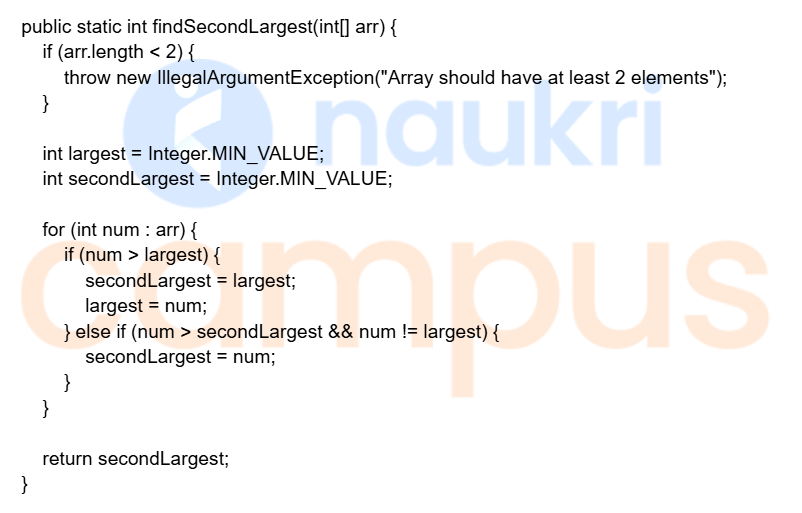
This solution has O(n) time complexity and O(1) space complexity.
How would you reverse a linked list?
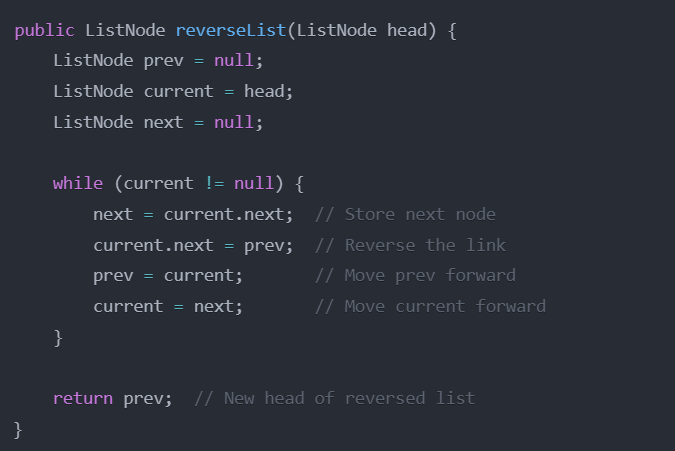
This iterative approach has O(n) time complexity and O(1) space complexity.
Write a program to check if a binary tree is balanced.
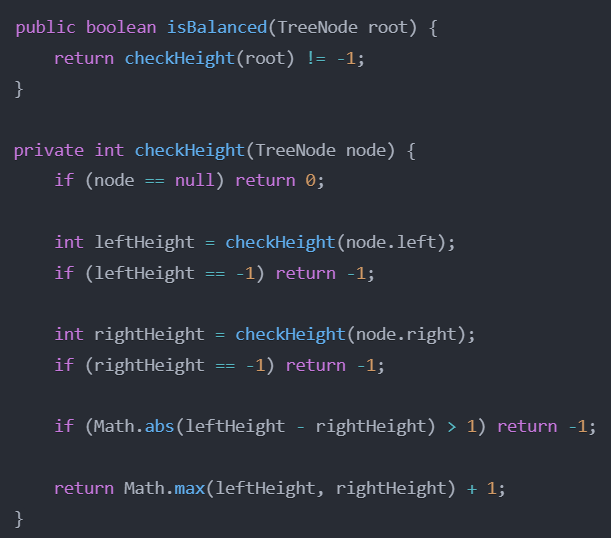
A balanced tree has a height difference between left and right subtrees that does not exceed 1 for all nodes. This approach has O(n) time complexity.
How would you implement a queue using two stacks?
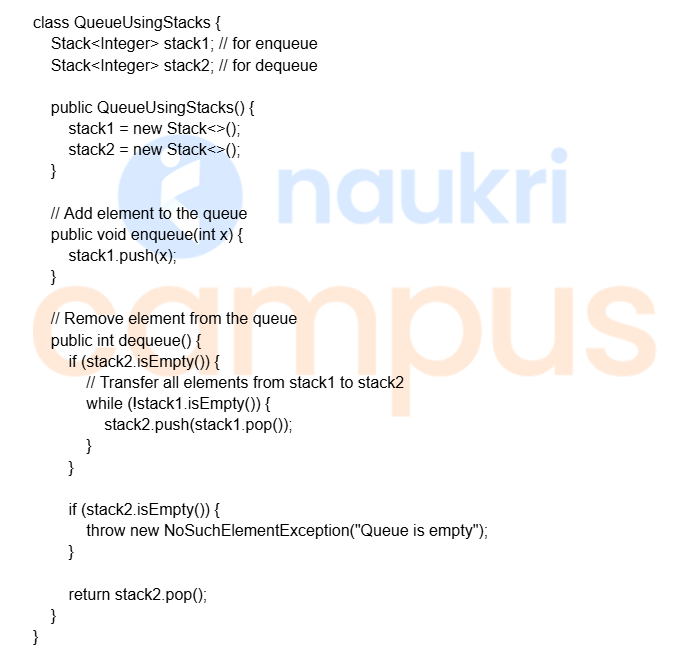
This implementation ensures FIFO behavior with amortized O(1) time complexity for both enqueue and dequeue operations.
Explain the concept of dynamic programming with an example.
Dynamic programming solves complex problems by breaking them into simpler overlapping subproblems and storing the results to avoid redundant calculations. Consider the Fibonacci sequence: calculating F(n) = F(n-1) + F(n-2) recursively has exponential time complexity, but using dynamic programming:
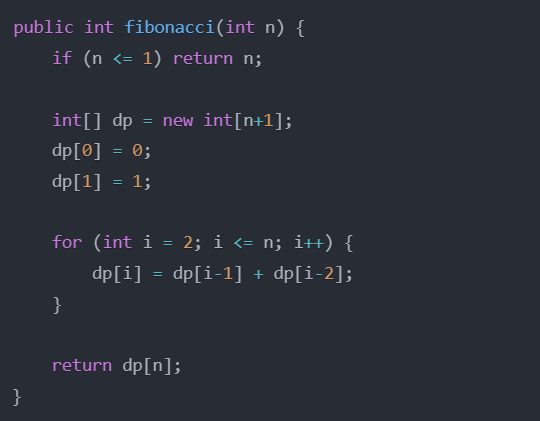
This approach has O(n) time complexity compared to O(2^n) with naive recursion. Other classic dynamic programming problems include the knapsack problem, the longest common subsequence, and matrix chain multiplication.
Tell me about your final year project and the technologies you used.
“My final year project was an AI-powered healthcare chatbot that assists users in preliminary diagnosis and medical information. I used Python with Flask for the backend, React.js for the frontend, and MongoDB for data storage. The NLP capabilities were implemented using the NLTK and spaCy libraries, while the chatbot’s diagnostic reasoning used a decision tree algorithm trained on a curated medical dataset. We integrated RESTful APIs for medication information and symptom checking. The project taught me full-stack development, data preprocessing, and the importance of ethical considerations in healthcare applications.”
What design patterns did you implement in your projects?
“I implemented the Singleton pattern for database connection management to ensure a single instance handled all queries. I used the Factory pattern to create different types of user accounts without exposing implementation details. The Observer pattern was implemented for real-time notifications where components subscribed to events. To handle multiple API formats, I employed the Adapter pattern. These patterns significantly improved code maintainability, reduced component coupling, and facilitated future enhancements.”
How did you handle version control in your project?
“We used Git with GitHub for version control. We followed the Gitflow workflow with main, develop, and feature branches. Each feature was created in a dedicated branch and merged to create after code review. We used pull requests and conducted thorough code reviews before merging. We held brief discussions for conflict resolution to understand the conflicting changes before resolving them. We also used semantic versioning for releases and maintained a comprehensive changelog.”
What testing methodologies are you familiar with?
“I’ve worked with several testing methodologies, including unit testing with JUnit for individual components, integration testing to verify component interactions, and system testing for end-to-end functionality. I’ve implemented test-driven development (TDD) where tests were written before code implementation. For our web application, I used Selenium for automated UI testing. I also conducted performance testing using JMeter to identify bottlenecks and ensure the application met load requirements.”
How would you optimize a slow-performing application?
“I would first identify bottlenecks through profiling tools and performance metrics. For database-related issues, optimize queries, add appropriate indexes, and consider caching frequently accessed data using Redis or Memcached. I’d implement code splitting and lazy loading for frontend performance and optimize assets. Algorithm optimizations include reducing time complexity or implementing more efficient data structures. Additionally, I’d consider architectural improvements like load balancing or microservices for better scalability. Throughout the process, I’d measure performance impacts of each change to ensure effectiveness.”
10 TCS Interview Questions for Freshers BPS
TCS BPS (Business Process Services) interviews focus more on communication, problem-solving, and business understanding than technical skills and knowledge.
What do you understand by business process outsourcing?
Business Process Outsourcing (BPO) contracts specific business tasks and functions to third-party service providers. It allows organizations to focus on core competencies while reducing operational costs. BPO services span various domains, including customer support, finance and accounting, human resources, and knowledge process outsourcing. The industry has evolved from purely cost-driven outsourcing to value addition through process optimization, analytics, and digital transformation.
How familiar are you with the ITIL framework?
ITIL (Information Technology Infrastructure Library) is a set of detailed practices for IT service management focused on aligning IT services with business needs. I understand its five core components: Service Strategy, Service Design, Service Transition, Service Operation, and Continual Service Improvement. ITIL helps organizations standardize processes, improve service quality, and manage IT services more efficiently. While I haven’t yet earned certification, I’ve studied its principles and understand how it structures IT service delivery and support processes.
Explain the concept of Six Sigma.
Six Sigma is a data-driven methodology that reduces defects and variability in business processes to improve quality. It follows the DMAIC framework (Define, Measure, Analyze, Improve, Control) for existing processes or DMADV (Define, Measure, Analyze, Design, Verify) for new processes. “Six Sigma” refers to processes operating with just 3.4 defects per million opportunities. The methodology uses statistical tools to identify the root causes of problems and implements solutions that lead to measurable, sustainable improvements in business performance.
What are KPIs, and why are they essential in BPS?
Key Performance Indicators (KPIs) are quantifiable measurements that reflect the critical success factors of an organization. In BPS, KPIs such as First Call Resolution, Average Handling Time, Customer Satisfaction Score, and Error Rate help measure process effectiveness and efficiency. They’re essential because they provide objective metrics to evaluate performance against service level agreements (SLAs), identify improvement opportunities, ensure accountability, and drive decision-making. Well-designed KPIs align operational activities with strategic business objectives and help demonstrate the value delivered by BPS operations.
How would you handle an irate customer?
When handling an irate customer, I would first listen actively without interruption to understand their concerns fully. I’d acknowledge their frustration with empathy, avoiding defensive responses. I’d then apologize for their negative experience, regardless of fault. After clarifying the issue, I’d propose a solution or escalation path with clear timelines. Throughout the interaction, I’d maintain a calm, professional tone. Following the resolution, I’d document the case for process improvement and follow up with the customer to ensure satisfaction, potentially turning a negative experience into a demonstration of excellent service recovery.
What is your understanding of data confidentiality in BPS?
BPS data confidentiality protects sensitive client and customer information from unauthorized access or disclosure. This requires robust security measures like encryption, access controls, secure infrastructure, and regular security audits. Depending on the industry and data type, BPS operations must comply with relevant regulations such as GDPR, HIPAA, or PCI DSS. Comprehensive employee training on data-handling protocols, clean desk policies, and non-disclosure agreements are essential. Data confidentiality is critical in BPS as breaches can lead to reputational damage, compliance violations, and loss of client trust.
How would you prioritize tasks when handling multiple client requests?
I prioritize multiple client requests using a structured approach. First, I’d evaluate each request based on urgency (deadlines and SLA commitments), importance (business impact), complexity (time required), and client priority levels. I’d use an Eisenhower Matrix to categorize tasks as urgent-important, not urgent-important, urgent-not important, or not urgent-not necessary. For conflicting priorities, I’d communicate transparently with stakeholders to manage expectations and, if required, escalate to management for guidance. I’d also implement time-blocking techniques to ensure focused attention on high-priority tasks while maintaining regular communication on progress.
What is your experience with CRM systems?
While I don’t have extensive professional experience with CRM systems, I’ve worked with Salesforce during my internship and university projects. CRM systems centralize customer information, track interactions, and automate workflows to improve relationship management. I’m familiar with key CRM functions, including contact management, sales pipeline tracking, service case management, and reporting capabilities. I’m eager to expand my knowledge of advanced CRM features and how they integrate with other business systems to provide comprehensive customer insights and enhance service delivery.
How do you stay updated with industry trends and regulations?
I stay updated through multiple channels: I follow industry publications like Gartner and Forrester reports and subscribe to newsletters from NASSCOM and BPM industry associations. I participate in relevant webinars and virtual conferences and am part of professional networking groups on LinkedIn where industry professionals share insights. I use Coursera and edX to take courses on emerging technologies and methodologies. Additionally, I set up Google Alerts for key industry terms to receive regular updates on new developments and regulatory changes relevant to the BPS sector.
What value would you add to our BPS team?
I would add value through my analytical thinking, strong communication skills, and adaptability. My academic background in [your field] provides me with [specific domain knowledge] that would help me understand client processes more thoroughly. I’m detail-oriented, which is crucial for maintaining accuracy in process execution. My experience with [relevant software or tools] would enable me to adapt quickly to your technical environment. I’m passionate about continuous improvement and would actively identify opportunities to enhance processes. Additionally, my ability to work effectively under pressure would be valuable in meeting SLAs and handling priority escalations.
10 TCS Interview Questions for Non-IT Students
TCS values diversity and regularly hires from non-IT backgrounds. Here are 10 TCS interview questions for non-IT students:
How do you plan to bridge the gap between your non-IT background and the technical requirements of this role?
I’ve been systematically building my technical foundation through online courses like Coursera and edX, completing certifications in programming fundamentals and data structures. I’ve applied these skills in personal projects, creating a [specific example] and demonstrating my ability to [relevant skill]. My background in [your field] provides unique analytical frameworks that complement technical problem-solving. I’m committed to continuous learning and plan to leverage TCS’s training programs while seeking mentorship from experienced colleagues to accelerate my technical growth.
What interests you about the IT industry despite your background in [your field]?
The IT industry fascinates me because of its transformative impact across all sectors, including [your field]. I’m particularly drawn to how technology solves complex real-world problems at scale. The IT sector’s rapid innovation cycle and merit-based growth opportunities align perfectly with my career aspirations. Additionally, I see significant synergy between my [specific skills from your background] and IT, as technologies like [relevant example] are revolutionizing my original field. This intersection of disciplines positions me to contribute unique perspectives while building technical expertise.
How comfortable are you with learning programming languages?
I’m very comfortable learning programming languages as I’ve already gained proficiency in Python through self-study and applied it in several projects, including a data analysis tool [brief description]. My background in [your field] has equipped me with strong logical thinking skills that translate well to programming concepts. I understand that different languages have different purposes and am eager to expand my knowledge based on project requirements. The challenge of mastering new languages is intellectually stimulating, and I appreciate how each language offers unique approaches to problem-solving.
What transferable skills from your discipline will be valuable in IT?
Several skills from my [your discipline] background transfer effectively to IT. My analytical thinking developed through [specific examples] helps in problem decomposition and solution design. The research methodology I’ve learned enables me to troubleshoot issues and validate solutions. Project management skills from [relevant experience] will assist in planning and executing technical deliverables. My domain knowledge in [specific area] also provides valuable business context for developing effective IT solutions. These complementary skills will help me bridge technical concepts with business needs.
Have you taken any steps to familiarize yourself with basic IT concepts?
Yes, I’ve taken several concrete steps. I completed the “CS50: Introduction to Computer Science” course from Harvard through edX, which covered programming fundamentals, data structures, algorithms, and web development. I’ve built a portfolio of small projects, including [specific example], demonstrating my understanding of [relevant concept]. Additionally, I’ve been participating in coding challenges on platforms like HackerRank to sharpen my problem-solving skills. I also follow technology blogs and YouTube channels like Tech Dummies and Gaurav Sen to understand system design concepts and industry practices.
How would you handle technical challenges in your role?
When facing technical challenges, I would first thoroughly understand the problem by breaking it down and identifying specific unknowns. I’d research solutions through documentation, knowledge bases, and reputable technical forums while applying structured problem-solving techniques from my background. I’d consult more experienced team members for complex issues, clearly explaining what I’ve tried and learned so far. I believe in balancing independence with effective collaboration. After resolving issues, I’d document the solution and underlying concepts to build my knowledge base and help others facing similar challenges.
What do you understand about TCS’s business model and services?
TCS is a global IT services, consulting, and business solutions organization that partners with clients across industries to simplify, strengthen, and transform their businesses. Their business model focuses on long-term client relationships through their Business 4.0 framework, helping organizations become intelligent, agile, automated, and cloud-based. TCS offers services spanning IT infrastructure, enterprise applications, consulting, business process services, engineering, and digital transformation. They operate across 46 countries with a significant presence in banking, retail, manufacturing, and healthcare sectors, consistently ranking among the world’s most valuable IT services brands.
How do you see your career progressing in the IT sector?
I envision my career progression starting with building a solid technical foundation at TCS while leveraging my background in [your field] to provide unique perspectives. In the short term, I aim to become proficient in core technologies and understand how IT solutions address business challenges. In the medium term, I’d like to specialize in [area of interest], where I can combine my domain knowledge with technical skills. In the long term, I aspire to grow into a role that bridges technology and business strategy, possibly in solution architecture or product management, where I can influence how technology solves complex problems in [relevant industry].
How would you contribute to a team with members with a predominantly IT background?
I would contribute by offering a complementary perspective that bridges technical considerations with domain expertise from my [your field] background. This diversity of thought often leads to more innovative solutions. I can translate complex technical concepts into business-friendly language when communicating with stakeholders. My fresh perspective might help identify non-obvious use cases or user experience considerations. My strengths in [relevant soft skills] would also enhance team collaboration. While learning technical concepts from my colleagues, I would enrich the team’s understanding of [your domain] contexts where their solutions will be applied.
What challenges do you anticipate in transitioning to an IT role, and how will you overcome them?
I anticipate three main challenges: First, the learning curve for technical concepts, which I’ll address through structured self-study, leveraging TCS training programs, and creating practice projects. Second, adapting to IT-specific terminology and methodologies, which I’ll overcome by maintaining a personal glossary, asking clarifying questions, and studying industry frameworks. Third, I have to prove my capabilities despite my non-traditional background, which I’ll address by delivering high-quality work, seeking feedback proactively, and focusing on measurable results. I view these challenges as growth opportunities and am prepared to invest the additional effort required for a successful transition.
How to Prepare for TCS Interview Questions
To effectively prepare for TCS interview questions, focus on these key areas:
Technical Preparation
- Core computer science fundamentals – Review data structures, algorithms, database concepts, operating systems, and networking principles
- Programming proficiency – Practice coding in at least one language (Java/Python preferred)
- Problem-solving skills – Solve algorithmic challenges on platforms like LeetCode or HackerRank
- Project experience – Be prepared to discuss your projects in depth, focusing on your specific contributions and challenges overcome
Communication Skills Enhancement
- Practice explaining technical concepts in simple terms
- Prepare concise answers to common interview questions
- Conduct mock interviews with peers or mentors for feedback
Company Research
- Study TCS’s service offerings and digital transformation initiatives
- Learn about TCS’s culture and values
- Review recent company news and developments
Excelling in TCS interviews requires thorough preparation across technical knowledge, communication skills, and company awareness. By mastering these TCS interview questions for freshers and their answers, you’ll be well-positioned to succeed in the competitive TCS recruitment process.
FAQs on TCS Interview Questions for Freshers
How many rounds are there in the TCS interview for freshers?
TCS typically conducts 3 rounds for freshers: an online aptitude test (NQT), a technical interview testing core CS concepts, and an HR interview focusing on personality and cultural fit.
What is the TCS interview process for freshers?
The TCS recruitment process involves online registration, a National Qualifier Test (aptitude assessment), a technical interview evaluating programming and CS fundamentals, an HR interview exploring personality traits, and document verification before final selection.
Is the TCS interview tough for freshers?
TCS interviews are moderately challenging but fair. Preparation in core CS fundamentals, programming skills, and communication abilities will significantly improve your chances. TCS evaluates potential rather than expecting advanced expertise from freshers.
How can I prepare for TCS BPS interview questions?
For TCS BPS interviews, understand business process outsourcing concepts, study customer service principles, practice communication skills, learn about ITIL and Six Sigma, and prepare examples demonstrating your analytical thinking and problem-solving abilities.
What programming languages should I know for TCS interview questions?
Focus on at least one programming language proficiently (Java or Python recommended). TCS expects freshers to demonstrate strong fundamentals rather than expertise in multiple languages. Be prepared to write code and explain algorithms.
What are the common HR interview questions asked at TCS for freshers?
Common TCS HR questions include: “Why TCS?”, “Where do you see yourself in 5 years?“, “How would you handle conflict?”, “Tell me about yourself” and strengths/weaknesses inquiries test communication skills and culture fit.
How do you prepare for TCS technical interview questions?
Prepare for TCS technical interviews by mastering data structures, algorithms, database concepts, operating systems, and networking basics. Practice coding problems, review your projects, and prepare to explain technical concepts clearly.
What dress code should I follow for TCS interviews?
Dress professionally for TCS interviews. Men should wear formal shirts, trousers, and formal shoes. Women should opt for formal Western or Indian attire. Maintain a neat appearance with minimal accessories for a positive first impression.
What questions are asked in TCS interviews for non-IT graduates?
Non-IT graduates face questions about adaptability to technology, willingness to learn programming, analytical abilities, problem-solving skills, and how their unique educational background adds value to TCS projects across various industries.
How to answer “Why TCS?” in fresher interviews?
Answer “Why TCS?” by highlighting TCS’s global presence, diverse project opportunities, excellent training programs, and growth potential. Connect TCS’s values to your career goals and mention specific TCS initiatives that inspire you.
Latest Posts
How to Answer “Why Do You Want to Work Remotely?”
In today’s evolving job market, remote work has become increasingly prevalent, especially in the wake of global events that have reshaped how we approach our professional lives. For college students…
How to Answer – “Where Do You See Yourself in 5 Years?” In Interviews
The interview jitters are real, especially for fresh graduates or career changers. One question that consistently sends shivers down the spine of many freshers is the ever-present: “Where do you…
How to Answer “What are Your Hobbies?” Interview Question
In most interviews, there’s a question that seems simple but carries a lot of weight: “What are your hobbies?” Many students and freshers struggle to answer this confidently, not realizing…
Latest BPO Interview Questions For Freshers With Answers
Business Process Outsourcing (BPO) plays a crucial role in giving organizations all over the world affordable and effective solutions in today’s fast-paced business environment. For recent graduates, BPOs provide a…
Popular Posts
Top 21 Highest Paying Jobs in India For Freshers
The Indian job market is evolving rapidly, with new opportunities emerging across various sectors. As a student or fresher, identifying the best career in India that aligns with your interests…
25+ Best Online Courses for Graduates in 2025 [Free & Certified]
In today’s competitive job market, earning a degree is just the beginning. To truly stand out, college students and freshers must constantly upskill, stay updated with industry trends, and gain…
Best CV Formats for Freshers: Simple, Professional & Job-Winning Templates
Creating an effective CV (Curriculum Vitae) is the first step towards landing your dream job or internship as a fresh graduate. Your CV is your initial introduction to potential employers…
Top Computer Science Jobs for Freshers in India
The rapid evolution of technology has created immense opportunities for fresh computer science graduates. With the IT sector expanding globally, India is one of the top countries offering lucrative and…
How to Answer – ‘What Are Your Strengths and Weaknesses?’
Landing your first job is a thrilling yet daunting experience. You’ve meticulously crafted your resume, researched the company, and prepped for potential questions. But there’s one question that throws even…



